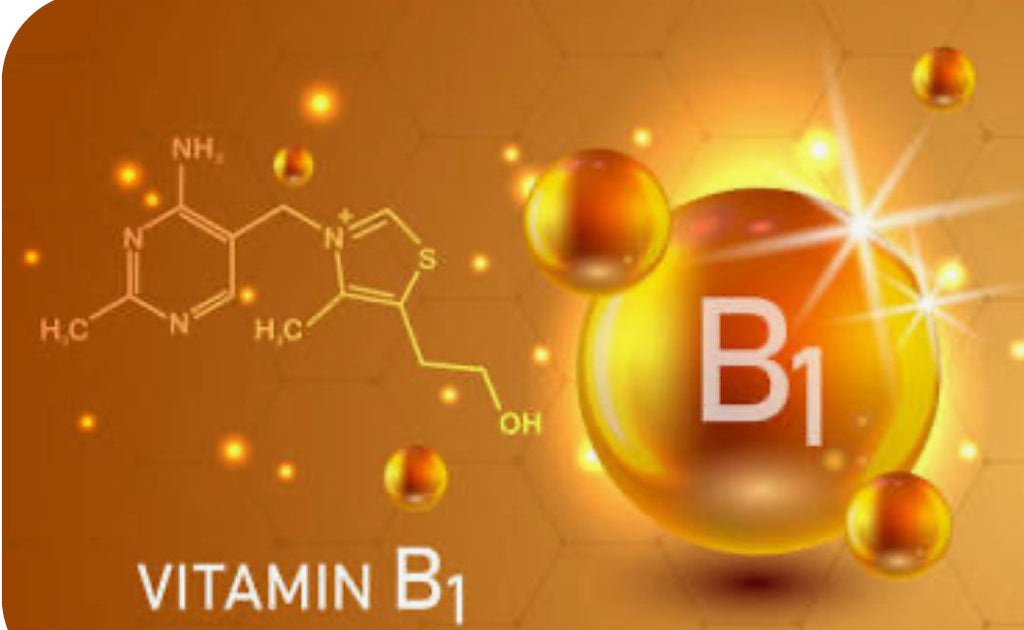Sex, Drugs & EVOO - Blog # 72

Hello Everyone! Welcome back to another Friday blog. Today I wanted to talk about a historically taboo subject that we all tend to avoid - sex. “According to the definition of the World Health Organization, sexual health refers to “a state of physical, emotional, mental, and social well-being in relation to sexuality, and not merely the absence of disease, dysfunction, or infirmity” (World Health Organization, 2006, p. 5).”
Did you know that sexual function, fertility and even pleasure all require metabolic health? This means your body (mitochondria) is flexible and capable of switching back and forth between burning carbohydrates and burning fats. “Metabolic flexibility is the ability to respond or adapt to conditional changes in metabolic demand. This broad concept has been propagated to explain insulin resistance and mechanisms governing fuel selection between glucose and fatty acids, highlighting the metabolic inflexibility of obesity and type 2 diabetes.” This means your body is capable of making energy properly. We now understand that 88% of Americans are metabolically unhealthy.
Statistics around women are shocking. Roughly 40% of ALL women experience sexual dysfunction. WHAT?!!! This could mean low libido, arousal, lubrication or orgasm. What is going on here? Once menopause hits, that number increases to 85% - holy moly! This can’t be normal. “Sexual dysfunction adversely affects quality of life, self esteem and interpersonal relationships and it may often be responsible for psychopathological disturbances.” In post menopausal women, low testosterone as well as reduced estrogen levels result in “vulvovaginal dryness and atrophy in addition to initiating changes of genital function through reduced sensory perception and decreased clitoral blood flow.”
A study published in 2013 looked at Female Sexual Dysfunction (FSD). “According to the findings, 185 (46.2%) women reported FSD. Prevalence of FSD increased with age, from 22% in women aged <20 years to 75.7% in women aged 40-50 years. FSD was detected as a desire problem in 45.3% of women, an arousal problem in 37.5%, a lubrication problem in 41.2%, an orgasm problem in 42.0%, a satisfaction problem in 44.5% and a pain problem in 42.5%. Rates of obesity and T2D (type 2 diabetes) continue to rise. Twice as many women with T2D report sexual dysfunction. “Diabetes rates during pregnancy for women giving birth in the United States have increased 30% from 2016 to 2020.” This rise is terrifying! When women have higher levels of insulin (IR), this can stimulate the theca cells of the ovaries to make too much testosterone or androgen = PCOS, the leading cause of infertility in the U.S. Roughly 20% of women child-bearing age (who had not had previous pregnancy) were unable to conceive after 1 year of trying - WHAT?!!
Another report looked at 42,000 men from around the world. They determined that sperm count has declined by 52.4% in the last 40 years! That’s a drop of >10% every decade. Men end up with erectile dysfunction (ED), fertility issues, depression and more. “Researchers estimated that these men had an average sperm concentration of 99 million per milliliter in 1973 but that that had dropped to an average 47 million per milliliter in 2011…That is a disturbing number given that, according to World Health Organization criteria, men with a sperm concentration of less than 40 million are considered to have an impaired chance of conceiving and those with a sperm concentration of less than 15 million per milliliter are unlikely to be able to have children.” Even more scary is that in men <40 years of age, 25% report ED or sexual dysfunction. Studies show men with ED have a higher risk for cardiovascular disease. “In the study, which followed more than 1,900 men, ages 60 to 78, over 4 years, those who reported ED were twice as likely to experience heart attacks, cardiac arrests, sudden cardiac death and fatal or non-fatal strokes..”
So why are we all having so much trouble in this department? Sexual function is really a barometer for other diseases that may be at play elsewhere in the body. According to the Mayo Clinic, ED and heart disease have many things in common:
- Diabetes. Men who have diabetes are at high risk of erectile dysfunction and heart disease.
- Tobacco use. Smoking increases your risk of developing vascular disease and can cause erectile dysfunction.
- Alcohol use. Drinking too much alcohol can cause heart disease and might contribute to other causes of heart disease, such as high blood pressure or abnormal cholesterol. Alcohol also impairs erections.
- High blood pressure. Over time, high blood pressure damages the lining of your arteries and accelerates the process of vascular disease. Certain high blood pressure medications, such as thiazide diuretics, can also affect sexual function.
- High cholesterol. A high level of low-density lipoprotein (LDL, or "bad") cholesterol can lead to atherosclerosis.
- Age. As you get older, erections might take longer to develop and might not be as firm. The younger you are, the more likely that erectile dysfunction signals a risk of heart disease. Men younger than 50 are at especially high risk - atherosclerosis of the penile artery.
- Obesity. Increases risks for low sperm count, heart disease, cancer, T2D and many other common metabolic diseases.
- Low testosterone. Men with low testosterone have higher rates of erectile dysfunction and cardiovascular disease than do men with normal testosterone levels. The more obese you are, the lower your sperm count.
- Toxins. These are known Obesogens. “Exposure to obesogens often leads to a deficiency or change in the ratio between androgen and estrogen sex steroid levels, which modifies this method of lipid balance resulting in lowered growth hormone secretion, hypocortisolemia (low levels of circulating cortisol), and increased resistance to insulin effects.” Glyphosate, among other herbicides/pesticides, sprayed on our food is a huge contributor to multiple disease processes including obesity, IR, fatty liver, dementias, Alzheimer’s, T2D and cardiovascular disease to name a few.
- Drugs. Many drugs contribute to disease processes. One example is anti-depressants, such as SSRI (selective serotonin re-uptake inhibitors). These drugs are also obesogens. Others include non-steroidal estrogens and T2D medications.
In order to get to the bottom of what is going on, we must look at what is required for sexual function. This includes multiple aspects of our metabolic health - blood flow, neurological input, hormonal balance as well as psychological factors.
- Blood Flow: Erectile tissue in both women and men must have blood flow for engorgement, lubrication, vaginal wall dilation/relaxation, penile erection. “Sildenafil (Viagra) — the first oral drug for erectile dysfunction to hit the market in 1998 — has been prescribed for more than 64 million men worldwide, and may soon be reclassified as a pharmacy medicine in the UK.” The little blue pill works by producing nitric oxide (NO) that dilates blood vessels. Insulin resistance (IR) blocks NO production. Eating a highly refined or high carbohydrate diet that induces frequent blood sugar rises and ultimately insulin resistance, damages the blood vessels causing a thickening of the blood vessels wall. This is due to inflammation. The lining thickens, becomes sticky, red and inflamed. The very small density LDLs are like BBs pinging against the vessel wall causing more damage. The body tries to protect it by laying calcium down - the body’s bandaid. This causes narrowing, essentially thumb over the garden hose. Blood pressure rises, weight-gain and other metabolic factors go up. Blood flow becomes compromised in the tiny vessels - this can affect the nerves too -
- Neurological: The Pudendal nerve supplies motor and sensory innervation to these organs. In women, >8,000 nerve endings supply the clitoris -pleasure is its only function. Men have roughly 4,000 nerve endings supplying the head of the penis. The pudendal nerve connects these organs to the brain. Blood sugar spikes over and over significantly affect and damage the nerve endings. Nerves do not have a direct blood supply. They rely on having enough blood flow and oxygen availability around them to function. HPG axis -
- Hormonal: Hormonal balance is critical for normal sexual function. There is a brain-sexual organs connection. The HPG (hypothalamic–pituitary–gonadal) axis “is primarily responsible for regulating reproductive activity and the release of ovarian hormones in animals and humans. In this way, the HPG axis also plays a key role in promoting healthy brain function, as ovarian hormones exert neuroprotective effects and facilitate neurogenesis, neuronal differentiation and survival, and cognitive function.” Testosterone, estrogens, progesterone, thyroid hormone, cortisol all have influences. As we get older, testosterone levels decline. By the time a woman reaches menopause, testosterone is roughly 1/4 of what it was in their early 20s. The result is weight gain, feeling tired and depressed - completely blocking most of their sex drive. “Besides low testosterone levels, low sex drive among women can also be affected by reduced levels of oestrogen during postmenopausal years. Low levels of oestrogen results in vulvovaginal dryness and atrophy in addition to initiating changes of genital function through reduced sensory perception and decreased clitoral blood flow.” In men, low testosterone decreases libido and erectile function. Elevated estrogen levels inhibit erectile function. The more overweight/obese, the lower sperm count. Fat tissue behaves very much like an ovary in men increasing aromatase activity and converting testosterone to estrogen. In women, Thyroid hormone also plays a role in influencing erectile function as well.
- Psychological/Mood: Multiple psychosocial factors affect sexual function. Stress is a big problem here. There must be desire and motivation to engage in sexual activity. Brain/neurological cells require incredible amounts of energy. Therefore, metabolic dysfunction is a key contributor to sexual dysfunction. Men who experience ED are 192% more likely to become depressed. Some research suggests that even one ED event can mentally impact and contribute to future ED events. Chronic stress contributes to multiple metabolic diseases in both men and women.
Okay, now that we have a general understanding of what is going on, how many of us are affected, contributing factors and what the requirements are, let’s take a look at what we can do to correct these issues.
- Fix IR - First thing to do is get your fasting insulin checked. According to newest recommendations from Boston Heart, this number should be <5. “An Insulin test result of < 5 uU/ml is normal in a non-diabetic, but low if the patient has diabetes (consistent with type 1 diabetes).” They recommend calculating HOMA-IR. This is the best test to calculate your level of insulin resistance. “Insulin Resistance is calculated as: Homeostasis Model of Insulin Resistance (HOMA-IR) = [fasting insulin (uU/ml) X fasting glucose (mg/dl)] /401.85.”
- Exercise - Exercise increases blood flow. Studies show men can increase testosterone by building muscle mass, as in strength training. “High intensity interval training (HIIT) has also been shown to raise testosterone levels. A few studies suggest resting for one to two minutes between intervals has most benefits.” In females, one study “concluded that 12 weeks of exercise programs was found to be effective in improving estradiol level of postmenopausal osteoporotic female. The efficacy of anaerobic exercise was found to be more potent on estradiol level and lean mass than aerobic exercises as only 36 sessions of resisted exercises performed during a period of 12 weeks provided more significant result than 72 session of aerobic exercises.” Check out blog # 65!
- Diet - Avoid foods that spike blood sugar. Wheat, corn, soy, oats and sugar. A high carbohydrate meal will spike glucose causing a massive insulin response. Many times, insulin overshoots and you end up with a huge drop in blood sugar, leaving us very low. Avoid high fructose - including HFCS (high fructose corn syrup), fruit juices, beer. This increases uric acid which stimulates fatty liver, IR and more - We know it causes gout, but it harms the body in many other ways. The more often you spike your glucose, the more insulin gets released. This constant insulin stimulation fatigues the Pancreas. Cells become resistant to insulin, so pancreas pumps out even more. Over time, this directly leads to T2D. If you get tired after you eat, you likely have insulin surges.
- Time-restricted eating - Stop eating all day from the moment you wake up until you go to bed. Your body is NOT able to get into a rest and repair mode. Give yourself an 8-10 hour eating window. This allows your body 14-16 hours to get into cleanup and repair mode. Try giving your body a day off from eating - 1-2x/month - or even once per week if you are obese.
- Lose weight - Measure your waist circumference. If your waist to hip ratio is >1.9 for men and 1.8 for women, you are at risk. Belly fat, as we learned acts like an endocrine organ, increasing conversion of testosterone to estrogen in men. In women, it promotes the conversion of estrogens to androgens. Luteinizing hormone decreases with PCOS (poly-cystic ovarian syndrome), severely impacting fertility. “Overweight and obese fertile women have lower FSH, LH, inhibin B, and estradiol levels in the early follicular phase, with a possible direct inhibitory effect of body mass on gonadotropin and estradiol production, independently of age, insulin (concentrations and sensitivity), and other hormones.”
- Dopamine fast - This is the “happy hormone.” It is the primary driver of the reward center of the brain. We constantly stimulate it through media - Netflix, Instagram, Facebook, porn, phone…When you take a break from these things, your body is able to reset. This allows you to experience things in a much more pleasurable way. The end result is you become happier.
- Relationship - take time to build your relationship with your partner. Put down your phones and turn off the TV. Set aside a date night. Set aside a few minutes every day to devote to your lover. Find new ways to communicate and build the relationship YOU WANT to have.
- Meditate - Take a few minutes to breathe deep, turn down external inputs and clear your mind to combat chronic stress.
- HP-EVOO - Polyphenols in EVOO go a long way in combating metabolic dysfunction and promoting health. Polyphenols feed the good microbes allowing them to produce NO dilating blood vessels (without the need for the blue pill) and many other postbiotics that promote health. Oleic Acid heals the lining of blood vessels promoting blood flow. EVOO further promotes the growth of new neurons - check out blog #67! It is great for your skin! Use EVOO for massage.
So, until next time my friends…Drink, Drizzle, Digest HP-EVOO 2-4T raw daily, - use more for cooking - eat the rainbow of organic or wild-sourced veggies (7-9 C) and low-glycemic fruits (to get the rainbow of gut microbes!) Eat wild-caught, pasture-raised, grass-fed, get plenty of sunshine + supplement magnesium, zinc, vitamin D3 + K2, get your trace minerals and electrolytes with good sea salt *Himalayan was formed before plastics, eat foods high in lutein, drink your body weight in oz of water, get a good pre/probiotic (if you have wiped out your gut microbes with antibiotics), consume indigestible fiber for your gut microbes, fermented foods for the post-biotics, adaptogens and methylation donors (kale, beets, lion’s mane…) to detox, enhance overall health and reverse aging and disease, exercise your body and mind, add a few minutes of mindful meditation to your day to combat stress, take a hot Epsom salt bath and follow with a cold shower/plunge, remove EMF (electromagnetic frequency) devices and blue light, use IR (infrared) from incandescent lighting, candles (check for toxic chemicals) or fire or in the evening to enhance sleep and...turn off the light!! #HP-EVOO
This blog is intended for informational purposes only. Discuss strategies with your Healthcare Practitioner.






